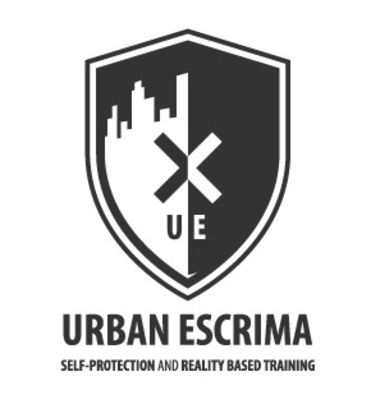Baby Baby Teachers

There is an old phrase – “those who can: do. Those who can’t: teach.”
It’s a dubious sentiment for many reasons, but one which has been on my mind recently. I’ve now been learning escrima for nearly four years, and have taught a little bit of women’s self-defence via its organisation. Also in the last few months I took the first of some very, very baby steps down the road of becoming an assistant instructor, and it’s…
… a little intimidating, to be honest.
First things first: I enjoy teaching. I enjoy watching people learn, and get a real kick out of the moment something awesome emerges from something scared. I also enjoy what teaching does to me, how it pushes me to question my own assumptions. In four hours in a seminar on escrima teaching in Cambridge, I learned more about myself as a student than I imagined possible. The syllabus is, in many ways, a work of art. From deceptively simple beginnings, it layers one idea upon another until suddenly, many years later, you can look back at your very first grade and go, “right, yes! That thing – now I see how it makes it all work better!”
From this simple truth, beautiful things emerge, but also from this truth lies a deadly trap – that the things you learned on your first grade, if you learned them badly, will suddenly pop up on your seventh with a cry of “well aren’t you screwed now?”
Hence my sense of intimidation. There’s a lot to learn; there’s a lot to teach. There’s a lot that could be taught very badly indeed, and I am stunningly grateful to my escrima teachers for being as good as I think they are.
But here’s my big thing, the question I never got round to asking: what actually makes a good teacher? Can it be defined?
In part this question springs from past, harsh experience. In the karate club I used to attend, the white belts endured a huge amount of pain and punishment without any explanation, constantly berated by purple belts for their lack of stamina. Then jiu jitsu, run by an investment banker who was just desperate for someone to mug him so he could test out his moves on an unwilling target; this Sensei would actively penalise and humiliate students, and his response to me, a skinny bookish girl being unable to throw an eighteen-stone six-foot four man over my shoulder, was ‘you’re not trying – get stronger, do it better!’ Because that’s great. That’s dynamic thoughtful teaching at its best, thank you kindly.
Finally, soul-crushingly, there’s been plain misogyny in teaching. I once had a lecturer who would ask a question… when I would answer, he would dismiss my words as foolish. A boy would then raise his hand, repeat back what I’d said, rather more stutteringly, and the teacher would praise him. At first I thought I was imagining this – by the end of the course, every student, of whom all but two were male, had come to commiserate about it with me.
This is not the only misogyny I’ve met as a pupil – it is however a good reminder that teachers are people, (just like doctors) and the faith and trust you put in the dignity of their profession should not blind you to the basic humanity, warts and all, of the man or woman who sits in front of you. There is a shocking moment when, as a child, you realise that your elders might actually be talking bollocks. There is no objective ideal of ‘teacher’ – just people in a role, for better or worse.
As a student, you may sometimes find yourself doing difficult or ridiculous thing. (2 up, 1 down drill, I look at you….) The way you get through this experience, is by trusting your teacher. In many ways, this trust is freely given. As a society, we’re taught respect at an early age for our teachers, and put our faith in the fact that they know what they’re talking about, even if they can’t, at this exact point in time, definitively prove that light travels at 3x10ms-1.
Pupil-teacher trust: wonderful when you have it, horrific if it’s lost. I lost trust in my karate teacher the day he informed me that being gently beaten up by him and his senior student would ‘toughen me up’. I lost faith in my jiu jitsu teacher, the day he pretended not to notice a student he disliked, and didn’t tell her whether she’d passed an exam. I never went back.
How is trust earned and maintained beyond the initial societal thing? At school and uni, two qualities always stood out – the ability to hold the attention of a room, and confidence in a subject. The two are be connected, but certainly the ability to catch the eye of thirty bored schoolkids, and hold them, keep them focused and attentive – is the word we’re going for here charisma? I suspect a better word is engaged. Mind turned on and focused, giving you, the student, the same attention you are giving the teacher. I think it’s this – this sharing of intent and energy – which we might otherwise call charisma, being a thing as often expressed in physicality as it is in language.
Of course charisma means nothing without skill and confidence in the subject; a charismatic teacher talking bollocks is vastly worse than a nervous teacher speaking truth. This is where the old maxim of ‘those who can, do; those who can’t, teach’ collapses. There is many an expert in their field who can solve a problem with their eyes shut but who, if asked to explain it to a civilian, just flap and splutter ‘look it up when you get home!’ A teacher is a double-whammy of awesome – both knowledgeable and expressive, able to elevate an idea. In academic subjects this might be the ability to explain what a resultative verb is in language that makes sense to a child, or to illustrate fractals without reference to Frozen. In martial arts I suspect this is both the ability to show a thing, to see how the pupils then perform a thing, but also to be able to express the purpose of a thing and how that thing may tie to another thing without causing brain-melt in an already sweaty room.
More – a good teacher should know his or her stuff, but also be willing to accept questions, and accept they may not have the answer. In other words – pupils are people too, and just because they aren’t yet kick-ass awesome masters of an art, does not in any way invalidate the intelligence they bring to the room. I would far rather have a teacher go, “Yeah, need to think about that…” than exclaim, “What a silly question, if you’d only been paying attention…!” A student must respect a teacher – a teacher needs to respect a pupil, even if that pupil is struggling, and to the best of their ability find a way for that pupil to understand within the student’s language, not the teacher’s. (See: my many rants about language learning.) In education in this country, that’s a big ask, given the current state of the school system, class size and teacher pay, but in martial arts and vocational training I think it’s more than do-able.
Confidence is not arrogance; not only is it important that students see humanity in their teachers, I think it’s important that teachers see the humanity in themselves, and are willing to question their assumptions and methods. Some of the best teachers I had at secondary school seemed to be terrifying disciplinarians, and if that was all they were their classes would have sucked. As it was, the discipline they imposed created an environment in which questioning, experimenting and dialogue could be safe and respectful, instead of a power-struggle for domination of the room. And within that dialogue, humans emerged, who could respect each other, and again, from respect, comes trust.
All that said, let’s go back to the beginning. I love teaching; I am aware that there is a burden of responsibility which comes with teaching escrima to a) not let the martial art in all its present awesomeness down and b) not to teach nonsense while thinking it’s correct. It’s a bigger burden than it might at first appear.
I have had some great teachers, I have had some bad teachers. My escrima teachers are fantastic. Shout-outs should go to past academic teachers (Prof. Rodriguez-Salgado, Dr. Spohr, Dr. Keenan, Di Favell – salutations) and to past secondary school teachers (hello Miss. Ingham, Dr. Stevens, Mr. A.Davies, Miss. Hanley, and thank you) all of whom gave me, as a student, something wonderful to last me a lifetime. As teachers, they perhaps all shared certain qualities – expertise, confidence, open minds, attentive attitudes towards their students and all they might say, critical thinking and a care for each individual in their class, awareness of what their strengths and weaknesses might be. As people, they are worlds apart. It’s not as easy as looking for a sign on a person’s sleeve, to know whether they’ll be good at teaching, and who knows, as I study and learn about studying and learning, everything I’ve said here today, I may un-say tomorrow, and that’d kinda be fine with me.





